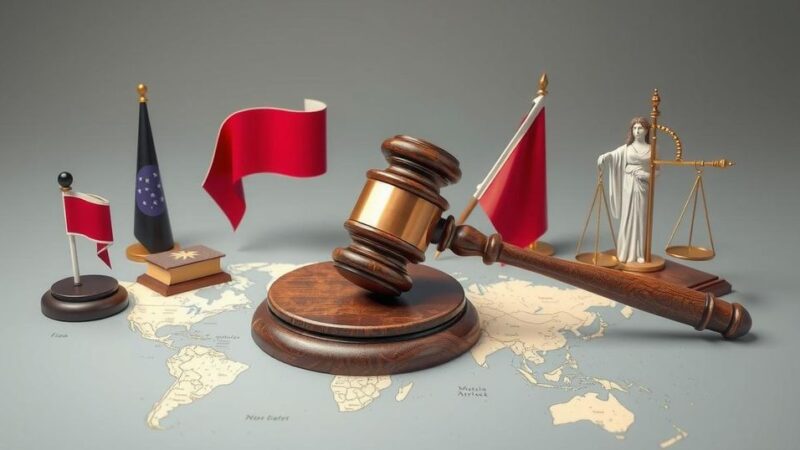Brazil is recalibrating its longstanding support for Venezuela, reflecting a strategic shift under President Lula da Silva, who is distancing from Maduro’s regime amidst growing discontent over economic and human rights crises. This transformation is driven by anti-Maduro protests, pressure from the Venezuelan diaspora, and changing public opinion in Brazil, indicating a potential for future support of democratic changes in Venezuela.
Brazil is experiencing a significant shift in its approach to Venezuela under the leadership of President Luiz Inácio Lula da Silva. Historically, Brazil has maintained a close alliance with Venezuelan leaders, supporting the left-wing Bolivarian governments of Hugo Chávez and Nicolás Maduro. Brazilian support was particularly critical for Venezuela, providing energy cooperation, trade, and environmental initiatives, crucial amidst Maduro’s increasing geopolitical isolation. However, following recent elections in Venezuela—widely denounced as illegitimate—Lula’s administration has begun to distance itself from Maduro’s regime. Lula has publicly referred to the Venezuelan government as a “very unpleasant regime” with an “authoritarian slant,” illustrating a growing discontent. Several factors contribute to this change in Brazil’s stance. The resurgence of major anti-Maduro protests among the working class, who previously supported the regime, highlights disillusionment with failed policies that have led to rampant economic hardship and social unrest. Furthermore, the Venezuelan diaspora, having fled the dire conditions under Maduro, is gaining visibility in Brazil, exerting pressure on public sentiment against the embattled regime. Domestic Brazilian politics is also evolving, with public opinion increasingly rejecting support for Maduro. Leftist factions that once defended him are now aligning with growing concerns over economic mismanagement and human rights issues within Venezuela. Additionally, Lula’s own coalition for returning to power emphasizes the necessity of democratic values, further complicating his administration’s ties to Maduro. Beyond national sentiment, the international landscape is shifting against Maduro, with many Latin American nations refusing to acknowledge his electoral claims. This development, combined with Lula’s awareness of Brazil’s economic interests, suggests a strategic pivot; maintaining an alliance with an isolated regime holds diminishing returns. Instead, Brazil could benefit from fostering a democratic Venezuela with potential for new trade and investment opportunities. Despite these clear indicators of recalibration, Lula’s administration still hesitates to take definitive action against Maduro’s regime. Brazil’s cautious stance may inadvertently weaken its influence in ongoing negotiations aimed at aiding Venezuela’s transition toward democracy.
Brazil’s historical support for Venezuela’s leftist governments established a strong regional alliance, focusing on shared interests in energy, trade, and environmental management of the Amazon. Under Lula and Rousseff’s administrations, this partnership flourished, allowing Brazil to position itself prominently in regional politics. However, the socio-economic landscape within Venezuela has drastically changed under Maduro, prompting a reevaluation of Brazil’s friendly ties as public opinions shift and political realities evolve.
In summary, Brazil’s evolving diplomatic posture toward Venezuela signifies a departure from historical alignments and reflects broader socio-political and economic changes both domestically and across Latin America. The combination of intensified civil unrest in Venezuela, rising dissatisfaction among leftist supporters in Brazil, and shifting international relations presents Lula with a complex challenge. While the newfound focus on democratic integrity may strengthen Brazil’s geopolitical influence, the administration must navigate these changes with careful diplomacy to maintain its role as a stabilizing force in the region.
Original Source: foreignpolicy.com







